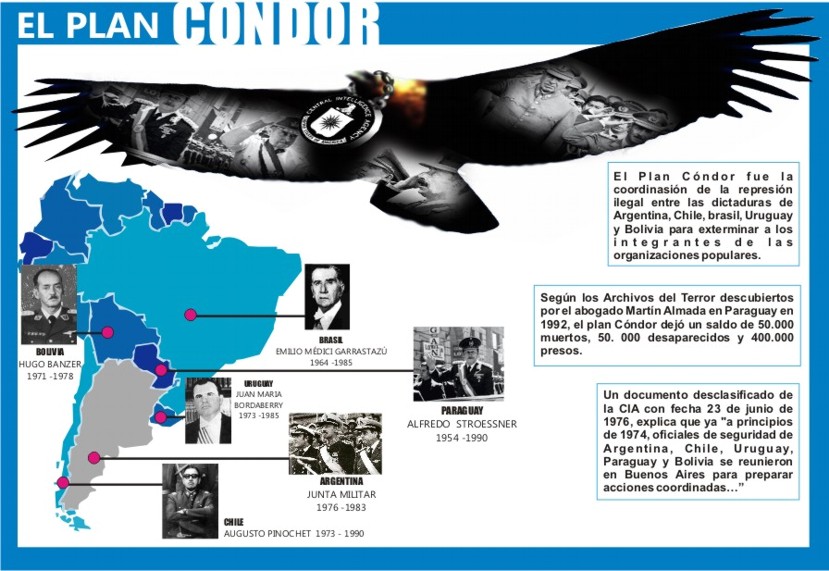Operation Condor 2.0: A Blow Against Venezuela
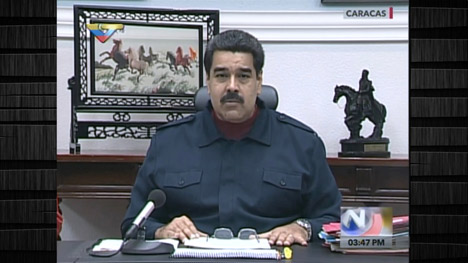
Much is known today about the active support that America’s intelligence agencies and State Department lent to those repressive operations. The campaign was coordinated by the US secretary of state at that time, Henry Kissinger, and an International Criminal Tribunal still holds documents incriminating him. At least 70,000 people were killed during the Condor operations – politicians, trade union and other public figures, journalists, diplomats, academics…
Venezuela is the primary target of the new Condor plan. The Obama administration is doing all it can to plunge that country into chaos and violence, subjecting it to waves of criminal terror, starvation, and looting, trying to spark a direct military intervention. A few days ago, the State Department hosted a three-hour meeting attended by the Uruguayan OAS Secretary General, Luis Almagro, who is pro-American, and the commander of US Southern Command. Venezuelan President Nicolás Maduro described that meeting as «conspiratorial», emphasizing that he is fully aware of what they were discussing: «They are obsessed with Venezuela. And you know why? Because they have not been able to suppress the Bolivarian Revolution».
Maduro claims that Venezuela has been subjected to «media, political, and diplomatic aggression, as well as extremely serious threats over the past ten years». A strategy is implemented that would justify foreign intervention. The American threat to Venezuela’s independence and sovereignty is looking much more credible. President Obama’s executive order naming Venezuela as a country posing a threat to US national security has set off alarm bells for Bolivarian leaders. Russia’s Foreign Ministry responded to that order in a similar vein, «This effectively directly encourages violence and foreign interference in Venezuela’s domestic affairs». Former Colombian President Álvaro Uribe’s call for foreign troops to enter Venezuela is viewed by the Bolivarian leadership as the latest chapter in the information war «approved by Washington», in the run-up to war itself. US Southern Command is planning further developments on the Venezuelan front, based on this exact scenario.
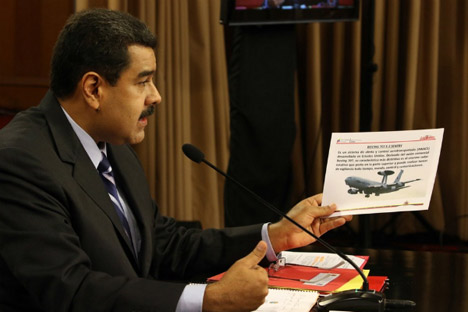
Venezuela’s air-defense system has recorded an uptick in the Pentagon’s intelligence-gathering activities. At a press conference on May 17 President Maduro revealed that the country’s border had twice been violated by a Boeing 707E3 Sentry – which is used by the US Air Force to support continuous communications with armed units in conflict zones or to disable electronic equipment belonging to the government and army. A spokesman for the Pentagon issued a denial: «Our nearest aircraft to Venezuela was about 100 miles from their border», adding that «American pilots respect internationally recognized national boundaries».
No one in Venezuela believes the Pentagon’s brazen lies about «respecting boundaries», because no one has forgotten the attacks on Yugoslavia, Libya, and Iraq. The CIA’s special ops are also a strong memory, as is the 2004 attempt to deploy a detachment of «paramilitares» to Venezuela from Colombia in order to attack the presidential palace and assassinate President Hugo Chávez.
Venezuela’s response has been to beef up its defense capabilities. After the incident with the US spy plane, large-scale exercises, dubbed Independencia II, were launched in the country, involving not only the military, but also civil defense forces. Member of parliament Carmen Meléndez, who served as defense minister during the Chávez administration, has stated bluntly, «We must be prepared for any scenario». The exercises were staged in seven Integral Defense Regions, 24 Territorial Integral Defense Zones, and 99 Areas of Integral Defense. A total of 520,000 soldiers and members of the Bolivarian militia took part. Defense Minister Vladimir Padrino was categorical in his assessment of the result of the exercises: «There is no other choice but to transform Venezuela into an impregnable fortress of a country, and this can be achieved through a civil-military alliance».
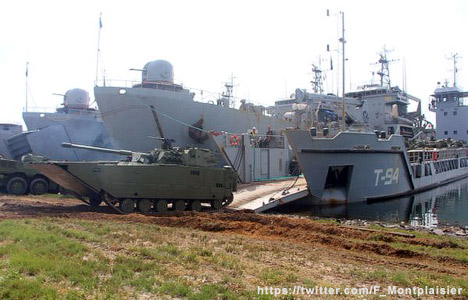
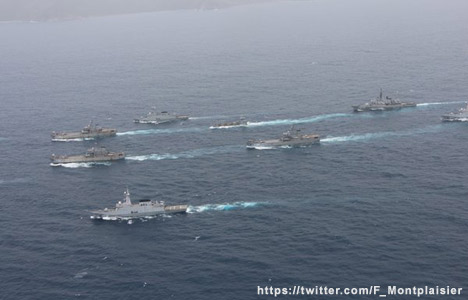
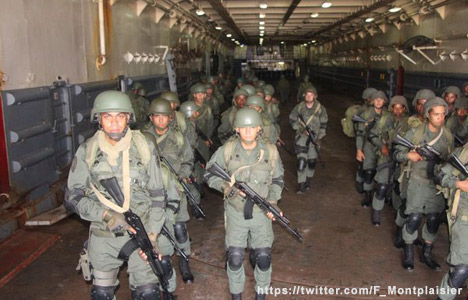
In light of the difficult situation unfolding in the country – the worsening of the economic crisis and the rise in protests by a segment of the public that is being influenced by the opposition – President Maduro has signed a decree giving the government emergency powers. This document, valid for 60 days, expands the government’s authority to take further steps to ensure security. The military can also be brought in to shore up public order. Businesses, companies, firms, and NGOs with foreign ties will be subject to more stringent oversight and their accounts will be frozen – or perhaps even their property confiscated – if any disloyal activity is detected. Food and electricity will be provided to assist the most vulnerable classes of the population.
Venezuela’s foreign ministry is moving to limit America’s diplomatic staff to 17-18 people. This is very inconvenient for the US embassy, since their intelligence agencies need approximately 180-200 US diplomats in place in order to do their job. In retaliation the US embassy announced that it would no longer issue tourist or business visas: «It is impossible for us to maintain our previous high standard of service to the hundreds of thousands of Venezuelan citizens who visit the US Embassy in Caracas each year».
In preparation for the second edition of the repressive Condor Plan for Venezuela, US intelligence agencies have assigned an important role to the intractable domestic opposition – which Chavez always claimed, was in the service of the US government. For American intelligence agencies and the opposition groups that answer to them, the parliamentary elections in Venezuela on Dec. 6, 2015 opened up further opportunities to destabilize the country.
The opposition promised the public that after the elections the long queues and consumer shortages would disappear, and they were able to win their first majority in the National Assembly in 17 years. However, the country gained nothing by it, and the opposition now uses the floor of parliament to further fan the flames of civil unrest.
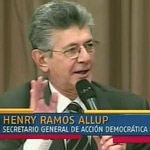 President Maduro declared his readiness to declare a state of emergency if the opposition’s subversive work continued. For example, the last march in Caracas by the opposition bloc Democratic Unity (MUD) ended in a free-for-all between the opposition and police. Law-enforcement officers, some of whom were female, suffered injuries when they were mercilessly beaten with metal bars. Some of their attackers were quickly pursued and detained. It turned out that the «protest» had been organized by Coromoto Rodríguez, the security chief for the head of parliament, Ramos Allup. In the 1970s Rodríguez was a member of the secret police (known as Disip), was involved in the torture of prisoners, and then served in President Carlos Andrés Pérez’s security detail while also working with the CIA.
President Maduro declared his readiness to declare a state of emergency if the opposition’s subversive work continued. For example, the last march in Caracas by the opposition bloc Democratic Unity (MUD) ended in a free-for-all between the opposition and police. Law-enforcement officers, some of whom were female, suffered injuries when they were mercilessly beaten with metal bars. Some of their attackers were quickly pursued and detained. It turned out that the «protest» had been organized by Coromoto Rodríguez, the security chief for the head of parliament, Ramos Allup. In the 1970s Rodríguez was a member of the secret police (known as Disip), was involved in the torture of prisoners, and then served in President Carlos Andrés Pérez’s security detail while also working with the CIA.
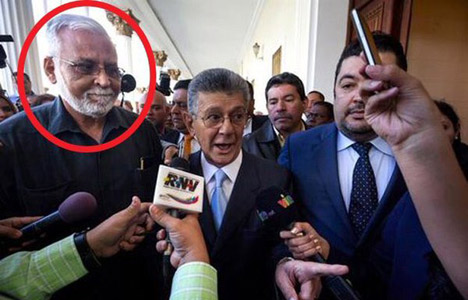
The arrests of the militants allowed SEBIN (the Bolivarian intelligence service) to shed some light on Rodríguez’s role in inciting riots in Caracas.
Now the Venezuelan opposition is preparing to hold a referendum to recall President Maduro. In early May, they instructed the National Electoral Council to verify about 1.85 million signatures (instead of 200,000 required by law) on a petition for a recall referendum. However, Vice President Aristóbulo Istúriz claimed that there were many irregularities in the collection of the signatures by the opposition and that the referendum will not be held until every one of those names has been verified.
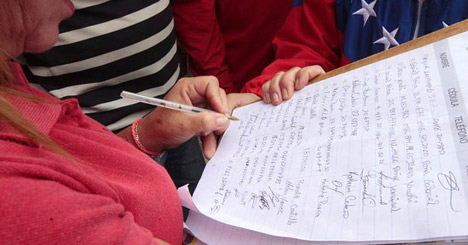
MUD leaders are trying to exploit this situation to provoke «spontaneous protests» by closing roads, setting fires, and sabotaging power lines and water and food supplies. But there is a far more sweeping campaign of terror on the horizon that could supersede the radicals’ currently torpid crusade. With increasing frequency agents from SEBIN and the police are uncovering arsenals of US-made firearms, grenades, and explosives in Caracas and other cities.
The Americans have long been nursing a vindictive thirst to make an example of the Bolivarians. It started back when Hugo Chávez was still alive, once he began to pursue an independent policy after taking office in 1999. His initiatives to modernize Latin America to serve the interests of Latin Americans were supported by Cuba and embraced by a new generation of Latin American leaders. The US dictate in the Western Hemisphere has begun to weaken. Chávez and his supporters fought to establish unifying regional blocs, pushing for the creation of a South American defense alliance and the use of the SUCRE as a regional currency, as well as developing other projects without American input.
Now Chávez’s successor – President Maduro – is the object of bitter attacks. The pro-American media has blamed him for the failure of the «Bolivarian economic model», citing falsified statistics on Maduro’s «low approval ratings», and aggressively lobbying for the idea of ousting the president by force. The opposition leaders, many of whom have had a hand in previous ventures to destabilize the regime, are appealing directly to the country’s armed forces asking them to «intervene»... Henrique Capriles Radonski, who has close ties to the CIA, has been especially outspoken.
But the defense minister, General Padrino López, has laid out the army’s position: «The president is the highest authority in the state, and we pledge to him our loyalty and unconditional support».
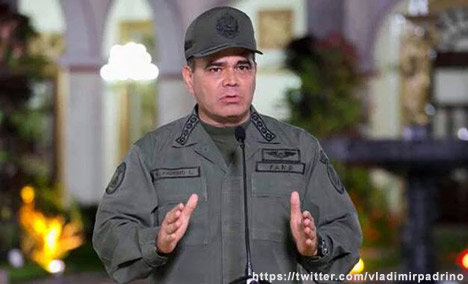
Attempts by the opposition to stir up a spirit of rebellion within the ranks of the military have thus far been unsuccessful. The patriotic ideals of Hugo Chávez are still alive in the army, and it is hoped that Operation Condor will misfire in Venezuela: the Venezuelan military will stay true to the Bolivarian constitution and president.
